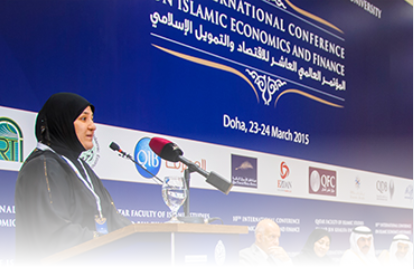7th CEOs and Islamic Finance Leaders Roundtable on Qatar’s Economic Growth Post-World Cup: Role of Banks and Islamic Financial Institutions
The 7th CEOs and Islamic Finance Leaders Roundtable will assist in gathering firsthand information from decision-makers and leaders of Islamic finance and provide a platform to discuss Qatari banking and financial institution roles and opportunities in the Qatar Islamic Sukuk Hub, the Qatar Fintech Strategy, and the Qatar National Climate Action Plan.

